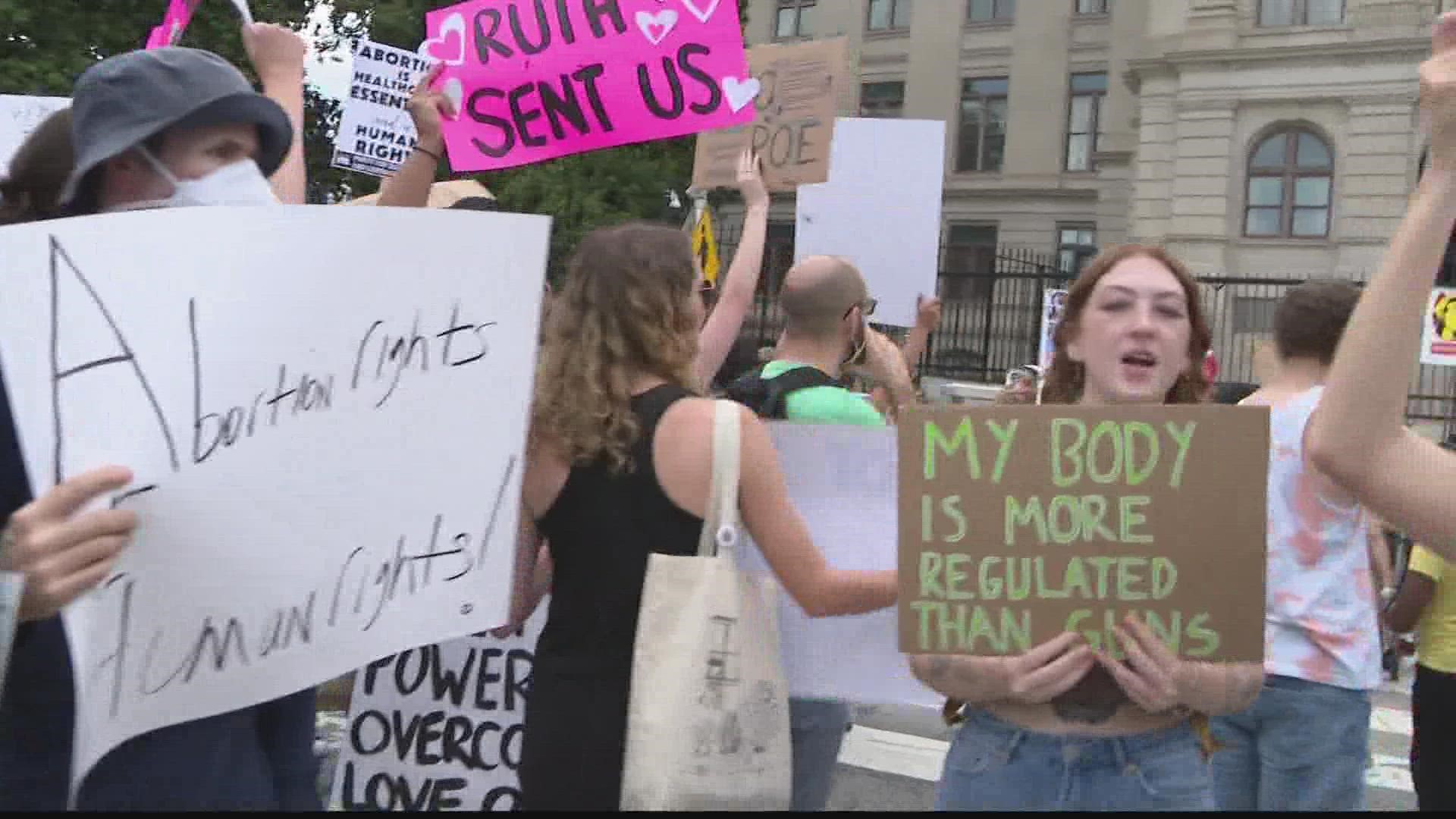ATLANTA — In Georgia, those who are both for and against the state’s “heartbeat” abortion law are asking if the upcoming U.S. Court of Appeals decision on that law will, in fact, be the last word.
Advocates on both sides are now looking at whether the law might actually violate the Georgia Constitution’s right to privacy.
The question—what if someone were to file a lawsuit on a state constitution claim?
“In Georgia, the battleground is going to shift from the federal courts to the state courts,” explained Fred Smith, a professor with Emory University’s School of Law. “There are some states that are going to attempt to secure the right to privacy and make it a more robust right” to include the right to an abortion. “And then there are other states that are going to aim to restrict birth control access, restrict the right to marriage, etc.,” by narrowing their definitions of privacy rights, "because the Supreme Court has kind of made it clear that that these are now open questions and that the right to privacy no longer means what it meant a week ago.”
Smith told 11Alive Monday it is possible that, in Georgia, there could be a state court challenge to the state’s new abortion law.
The Georgia law, if upheld by the federal court of appeals in a decision expected as soon as July, would ban most abortions after a fetal heartbeat is detected, usually at six weeks.
“And Georgia’s state constitutional tradition has a much more robust right to privacy than the federal constitution,” Smith said. “The Supreme Court of Georgia has said time and again that our state right to privacy is stronger than the federal right to privacy. And so we'll see exactly what that means with respect to laws like the six week law.”
Across the country, according to a U.S. News report, 10 states have already decided that their state constitutions’ rights to privacy specifically guarantee abortion rights.
“And it's not unusual for some state supreme courts to be well ahead of the Supreme Court on these kinds of issues,” Eric Segall, Georgia State University College of Law professor said on Monday. "To the extent pro-choice or pro-women's-rights groups and people want to get judicial relief for the right for women to terminate their pregnancy, they are going to be much, much, obviously, better off in state courts than the Supreme Court.”
Segall said that a lawsuit in a state court against Georgia’s abortion law could end up before the Supreme Court of Georgia for a ruling on whether the law violates the state constitution’s right to privacy.
And that, he said, could be the final decision on Georgia’s law.
“A decision based exclusively on state law, a Georgia Supreme Court decision based on the Georgia state constitution,” Segall explained, “cannot be reviewed by the United States Supreme Court unless the Georgia state opinion itself violates the (U.S.) Constitution.... So if tomorrow the Georgia Supreme Court said we're going to protect abortion under state law, then no, there's nothing that the (U.S.) Supreme Court could do about that, unless the court was willing to say that blue states, and purple states in our case, can't protect abortion at all.”
In other words, the Supreme Court of the United States would likely have no power to overturn a ruling by the Supreme Court of Georgia on whether Georgia’s state constitutional right to privacy includes access to abortion.

